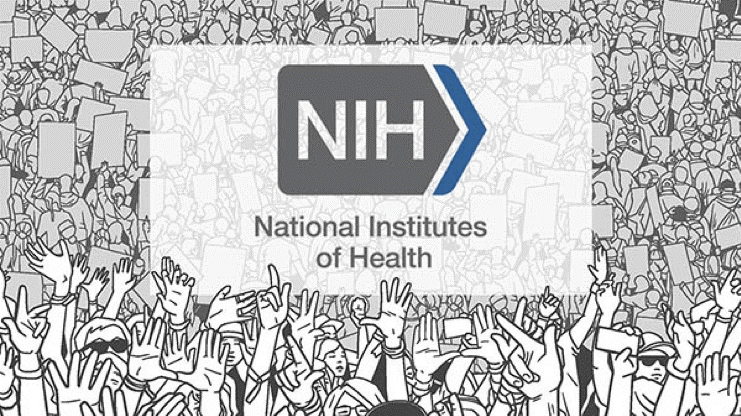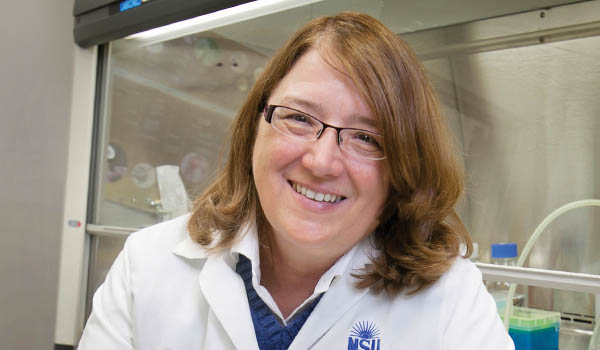
ME/CFS Research: A Year in Review
Written by Rochelle Joslyn, edited by Allison Ramiller
2018 was a pivotal year for ME/CFS research, yielding over 200 publications addressing various aspects of ME/CFS. Foundational work emerged from prominent biomedical scientists around the globe and powerful new technologies were used to advance our understanding of the disease. From sophisticated neuroimaging to characterization of immune cell dysfunction, the body of work produced this year decidedly situates ME/CFS within the realm of neuroimmune disease.
Studies from the past year encompass a range of domains, illuminating the physiological and biochemical nature of the disease. Reports describe unique elements of the ME/CFS experience, such as post-exertional malaise and social stigma. 2018 has also brought clinical trials of biochemical agents and immunomodulatory techniques. Importantly, substantial re-analyses debunked past trials of therapies rooted in the psychosomatic paradigm. Comprehensive molecular profiling to aid identification of biomarkers and novel therapeutic targets has moved the field closer to the prospect of objective diagnostic measures and novel clinical trials.
To explore highlights from key areas of ME/CFS research, check out Rochelle Joslyn’s blog on medium.
Dr. Nancy Klimas Talks ME/CFS and the Need for Better Medical Education with SheKnows.com
Recently, Solve M.E. was pleased to connect two show-stopping women. Caitlin Flynn, a writer for SHEKNOWS.com, the flagship property of SHEmedia, was looking for more accurate information about Myalgic Encephalomyelitis (ME) / Chronic Fatigue Syndrome (CFS), for a recent article. A sufferer of chronic illness herself, Flynn was looking for information about how Chronic Fatigue Syndrome (CFS) affects women and turned to Solve M.E. We connected her with Dr. Susan Levine and Dr. Nancy Klimas.
Nancy Klimas, MD, has more than 30 years of professional experience and has achieved international recognition for her research and clinical efforts in multi-symptom disorders, ME/CFS, Gulf War Illness (GWI), Fibromyalgia, and other Neuro Immune Disorders. She is a member of the VA Research Advisory Committee for GWI, the NIH P2P CFS Committee, and the Institute of Medicine ME/CFS Review Panel. Dr. Klimas has advised three Secretaries of Health and Human Services, including Kathleen Sabelius, during her repeated service on the Health and Human Services CFS Advisory Committee. Dr. Klimas has been featured on Good Morning America, in USA Today and the New York Times.
With permission, Solve M.E. shares this portion of the digital interview below:
Caitlin Flynn: I’m looking to focus on how [ME/CFS is] routinely dismissed as something middle class women make up (“the yuppie flu”) or it’s just plain old exhaustion from taking on too many work, family, and caregiving obligations. How would you respond to this/debunk this myth?
Nancy Klimas, M.D: With science — especially the strong evidence of neuroinflammation, systemic inflammation, autonomic dysfunction, and oxidative stress.
The evidence for neuroinflammation is seen in PET scans (see Watanabe’s article) and neuro oxidative stress (see Shungu’s article) are further confirmed by abnormalities of cognitive function and functional imaging of the brain (see Gudrun Lange and others). The evidence for inflammation and immune function abnormalities has been substantiated by our group and the Columbia group (Mady Hornig et al). The evidence for autonomic function was established in the early 90s and repeatedly validated (see Peter Rowe‘s work and the Institute of Medicine report). The IOM report concluded the illness is real, biologically based and serious.
CF: How would you describe what CFS really is? (With a focus on the symptoms other than fatigue)
NK: ME/CFS is an illness driven by brain and body inflammation, which disrupts endocrine regulation, blood pressure and other body functions, and sleep as well as cognitive speed. It also causes body pain. The immune function is also impaired so old viruses can reactivate and cause additional symptoms.
CF: Why is it a condition that tends to affect more women than men?
NK: Because it is immune mediated. Women are more susceptible to autoimmune illness and illnesses driven by inflammation. We don’t know why really, but I assume it is in part because testosterone is a strong anti-inflammatory. But men also can be affected so it cannot be that simple. Still, our studies see a very strong role of gonadal hormones in our models of the illness, and our models of men and women differ in large part because of the obvious hormone differences.
CF: Why is it so hard to diagnose?
NK: Because we do not have a simple and well-validated lab test. The markers that are abnormal are commonly abnormal in inflammatory illnesses. So, we can clearly see that they are not healthy, but we cannot easily circle the group and differentiate [ME/CFS] from other immune mediated illnesses. But, a clinician with knowledge of the case definition certainly can diagnose the illness with a careful history, physical exam and some straight forward lab testing to rule out other illnesses.
CF: Why are women sometimes dismissed by doctors when they seek treatment for chronic fatigue syndrome symptoms?
NK: Because far too frequently women still suffer from dismissive misogynistic assumptions. What can I say? At one level doctors are too busy with their 15-minute appointments to dig into a complex illness, and give [patients] their due. They probably never even had an hour in their Medical school curriculum on ME/CFS. But, even if they are ignorant about the illness, women suffering and disabled by an illness deserves a comprehensive and careful evaluation. [Many doctors need] the ability to say “I don’t know” rather than “there is nothing wrong with you.” Some medical humility is a critical part of being a good doctor. I’ve been at this now for 32 years and while there are more doctors now that do understand, I still hear the same shameful stories of derogatory experiences. We have a lot of medical education work ahead.
 Solve M.E. Brings the Big Data Revolution to ME/CFS Research with You + M.E. Registry
Solve M.E. Brings the Big Data Revolution to ME/CFS Research with You + M.E. Registry
While Solve M.E. has long had a registry and biobank, we are transitioning to an interactive platform that will serve as a data hub for the ME/CFS community. You can help us bring the big data revolution to ME/CFS research.
Based on input from a range of ME patients and researchers, we’ve designed a rich, open data source through a process that is easy for people with ME/CFS to use. Participants will enter symptom data in web-based surveys and via a mobile health tracking app. Patients own their data and can opt-in to share it with researchers.
Our Vision:

Community Resource, Built by the Community.” In it, Solve M.E.’s Chief Scientific Officer, Sadie Whittaker, PhD, discusses building a resource that is reflective of the priorities of individuals with ME/CFS and responsive to their needs, empowering them to partner with a network of researchers and providers to find solutions.
Join the Registry by clicking here.
Solve M.E. Former President Carol Head Weighs in On the New NIH NANDS Council Working Group
 The federal government has formed a new panel, the NIH NANDS Council Working Group for ME/CFS Research. This is not a replacement for CFSAC, as it is housed wholly within the NIH. This new Working Group will report to NINDS Council in September 2019. That’s a long time off from the perspective of patients, but relatively fast from an NIH perspective.
The federal government has formed a new panel, the NIH NANDS Council Working Group for ME/CFS Research. This is not a replacement for CFSAC, as it is housed wholly within the NIH. This new Working Group will report to NINDS Council in September 2019. That’s a long time off from the perspective of patients, but relatively fast from an NIH perspective.
This new group reports on how to advance ME/CFS research. This is a very broad mandate. The specific charge is to “…provide scientific guidance to the NANDS Council on how best to advance research on ME/CFS at the National Institutes of Health (NIH).” Carol’s reaction to this charge is summarized as, “More dollars! Faster!” Moving beyond that fervent sense of urgency, Carol’s role is to bring substance regarding how to do that, pulling both from Solve M.E.’s deep research knowledge and advocacy expertise in how to get things done in the federal government.


